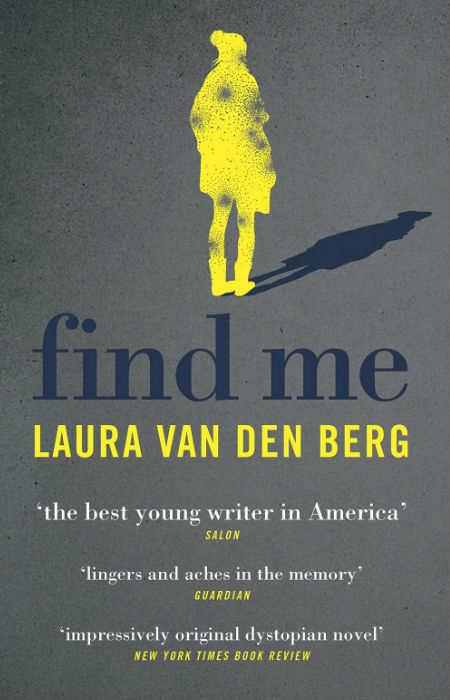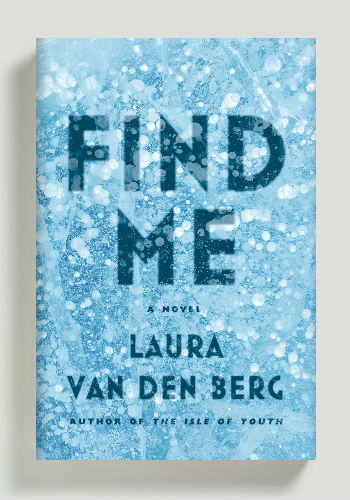
Identity cuts to the very core of what it means to be human.
Without it, we are faceless, stateless, bereft of connections and a sense of belonging, the very connections to people, places and memories that make us who we are gone.
Find Me by Laura van den Berg is a deeply reflective rumination on how this kind of disconnection affects individuals and society as a whole following a virulent epidemic sweeps the world that, as part of its cruel progression, strips the ability of its victims to remember who they are, where they’ve come from and even basic concepts such as oceans, cats and roads.
In short, everything that makes them human is leached away, leaving them in a state of ever-more crippled permanent forgetful loss until they die in a hazy blur of faceless confusion.
Conversely, Find Me also asks about the cost of remembering, of hanging onto memories especially those we would rather forget, something the 19 year old protagonist, Joy Jones, abandoned at birth by her mother and traumatised deep down by a life being shuttled between foster homes and institutions, begins to grappled with as she learns that she is immune to the disease which is cutting a swathe throughout the United States.
“A theory on why we stop remembering: there is a part of our story that we do not know hot to tell to ourselves and we will away its existence for so long that finally our brain agrees to a trade: I will let you forget this, but you will never feel whole.” (P. 243)
Brought to a hospital in the middle of Kansas along with 149 other people where they are promised a cure is being worked upon, an endeavour of which they are an integral part, Joy finds herself confronting the twin evils of forgetting everything and remembering too much.
That she opts in the end for remembering over forgetting is not so much because she wants to undergo the pain of long dormant memories bubbling to the surface but because she comes to realise that forgetting comes with a far heavier, higher price.
For those people who succumb to the disease, and their numbers are considerable as the epidemic runs its course, leaving a deeply dark and fatalistic society in its wake, the sentence is eternal loss and forgetfulness, a consigning to oblivion of all the many important things that made who they are.
As Joy witnesses these people losing their grip on their identities, she begins to understand that while it makes sense that you would want to bury trauma down as far as possible, through whatever means might be at your disposal, that you lose far more than you gain from this Faustian deal with yourself.

Hence remembering is a key theme repeated often throughout the book, with many chapters of the book punctuated by a recitation of facts on anything and everything, as if hanging onto all these facts will be enough to save off oblivion.
What makes this more than a simple though powerful argument for remembering over forgetting is that Joy is almost unbearably honest about the harrowing episodes in her life, even more so as several unexpectedly sad events during her stay in the hospital where a weirdly disembodied voice repeats statements of twee positivity at regular intervals over the loudspeaker, lead to question what it is she wants from her life.
Discovering her immunity propels this course of thinking all the more, as the threat of imminent death recedes and she begins to understand that she has an entire lifetime ahead of her and can’t simply aim for basic survival.
Van den Berg more than ably conveys Joy’s, through Joy’s progression, through her often simple, heartfelt and insightful observations, that sound simplistic and almost childlike at first before growing in complexity, maturity and recognition.
“Well.” He rubs the fine hair on his arms. “It’s not like I was madly in love.”
“Oh,” I say again. “So don’t you miss her?”
“What I miss is living.” (P.89)
Styled at an apocalyptic tale of sorts – civilisation as we know it doesn’t end but it certainly comes out the other side quite a bit worse for wear – Find Me, which loses some of its power and impact in the second half as Joy finds her way out in a scarred, bruised and battered outside world, is a deeply insightful meaningful tale of the high price we all pay to be who we are, and what happens when we decide we can’t live without the missing, pushed-down pieces of our soul.
There is a dark authenticity to van den Berg’s tale which, while possessing a nascent hopefulness as Joy discovers her mother has not only survived the epidemic but is a well-knowing shipwreck finder living in Florida (she remains realistic about what a reunion might be like but pursues it nonetheless), doesn’t attempt to sugarcoat the less attractive parts of the human condition.
Even so, it offers up the idea that remembering all the pain, the mistakes, the traumas and the darker period of our life, is worth it because it presents with the whole picture of who we are, a crucial thing to hold onto if we want to hold onto our identity.
It takes a near-apocalyptic epidemic where diseased forgetting begins to strip away who and what people are for the deep, to reinforce the importance of being honest with ourselves lest we lose the very things that make us who we are.